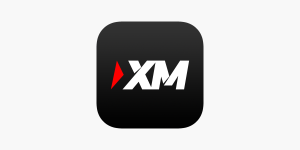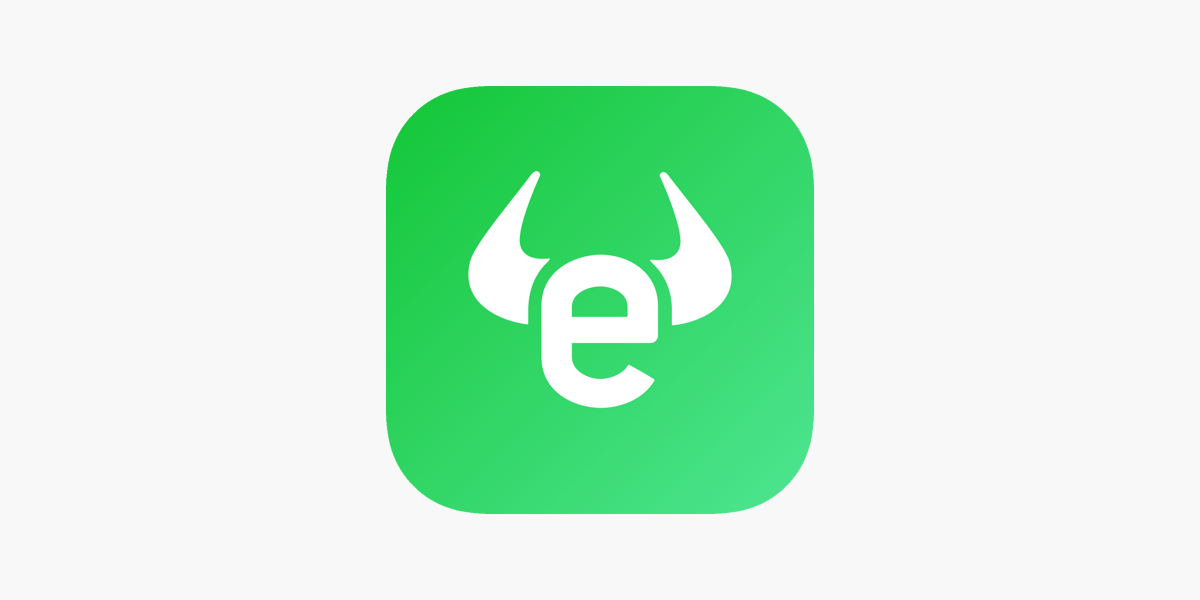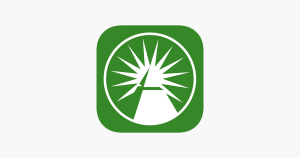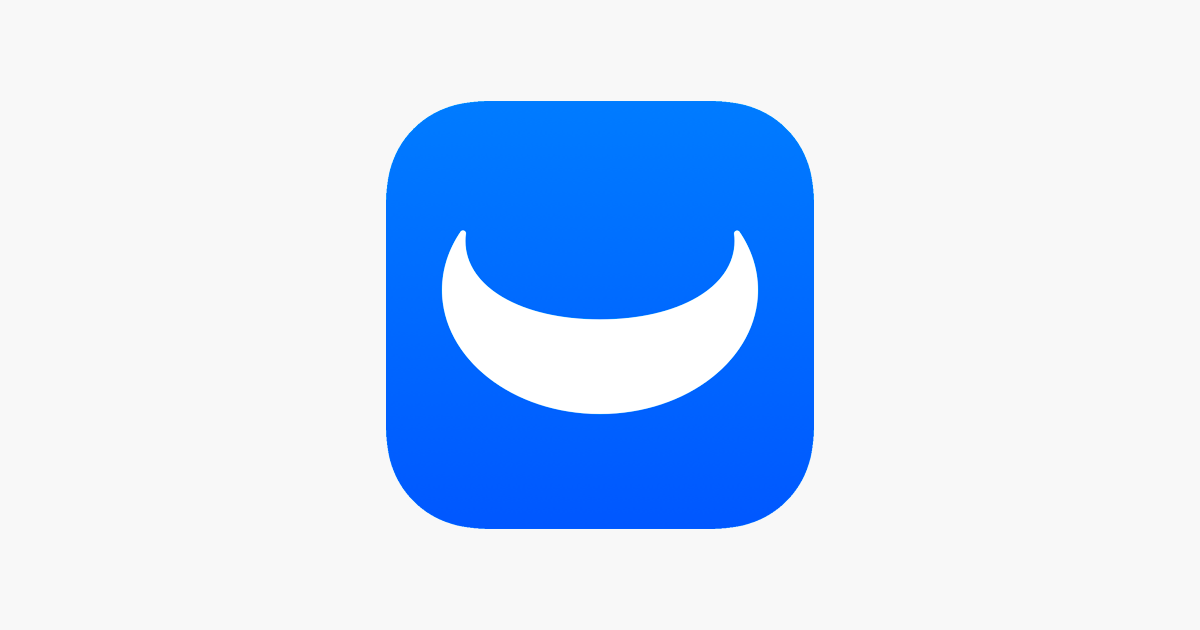
XM

eToro

Fidelity

Webull
In the fast-paced world of stock trading, traders require tools that keep up with their needs for efficiency and real-time access. The best trading apps in the United States cater to these demands, offering a plethora of features that range from advanced charting and analysis tools to seamless order execution. They aim to provide users with an edge in the market, catering to both experienced traders and novices alike. Accessibility and user experience are key, and the finest apps strike a balance between powerful functionality and intuitive design.
Selecting the right trading app can be a game-changing decision for an investor’s portfolio. It involves evaluating aspects such as commission fees, available investments, account types, and customer support. A well-chosen app not only facilitates buying and selling of stocks but also educates and informs its users through real-time data, financial news, and market alerts. With choices including apps like Robinhood known for its user-friendly interface and others like Interactive Brokers lauded for professional-grade tools, there’s an option suited for every trading style.
Emerging technologies continue to shape the landscape of mobile trading platforms, making the act of trading more accessible than ever before. As more players enter the market, the competitive environment pushes for innovation and improvement, benefiting consumers. Investors, seasoned and beginners, are encouraged to assess their individual needs, align them with the features offered by the top apps, and choose a platform that maximizes their trading potential.
Overview of Trading Apps
The landscape of financial trading has been revolutionized by the advent of mobile technology, leading to a proliferation of trading apps that offer unprecedented access and convenience. These apps cater to a wide spectrum of traders, from novices to seasoned professionals, delivering extensive functionalities through user-friendly interfaces.
Evolution of Online Trading
Online trading began as a complex process reserved for financial institutions and seasoned traders. With the introduction of the internet, online brokers made it possible for individuals to conduct trades directly through their computers. As mobile technology advanced, trading apps emerged, encapsulating powerful tools in the palms of traders’ hands. These apps have continued to improve, providing robust platforms that are often on par with their desktop counterparts.
Benefits of Mobile Trading Apps
Mobile trading apps have brought about significant benefits:
- Convenience: They allow users to access their portfolios, execute trades, and monitor the market from anywhere at any time.
- Real-time Data: Traders receive live updates, alerts, and financial news, ensuring they can make informed decisions promptly.
- Learning Tools: Many trading apps include educational resources to help individuals improve their trading strategies.
Understanding Trading Apps
When choosing a trading app, it’s crucial to consider the following elements:
- Features: Look for real-time quotes, charting tools, order execution capabilities, and the availability of a variety of investment options.
- Security: The app should have robust security measures to protect personal and financial information.
- Fees: Understand the fees associated with trading and account management, as some apps offer zero-commission trades while others may charge for premium services.
Trading apps are often developed by online brokers, and some of the best stock trading apps in the US have been rated for their performance and user satisfaction. These apps accommodate various forms of trading, including stocks, cryptocurrencies, and other financial instruments.
Key Features of Top Trading Apps
When assessing the best trading apps for the stock market in the USA, potential users should focus on the availability of real-time market data, the level of security and adherence to regulations, and the quality of the user experience and interface.
Real-Time Market Data
A crucial feature for any top trading app is the provision of real-time market data. This allows users to make informed decisions based on the most current price movements, news, and updates. Apps like eToro score highly due to their comprehensive data offerings.
Security and Regulation
Investors should prioritize trading apps that are highly regulated and prioritize security to protect their investments. Leading trading platforms are typically overseen by regulatory bodies such as the SEC and FINRA, ensuring they abide by stringent standards. For instance, Broker-assisted trades and other premium services often reflect an app’s commitment to regulatory compliance and safety.
User Experience and Interface
The user experience and interface can greatly influence the efficiency and satisfaction with which trades are executed. Trading apps need to have an intuitive design that caters to both beginners and experienced traders. Fidelity is known for its user-friendly interface, which simplifies the process of trading and investment analysis for the user.
Analyzing Different Asset Classes
When considering the best trading apps in the United States, investors have a multitude of asset classes to choose from. Each asset class offers distinct features, risks, and opportunities. The choice of an app may depend on the range of asset classes it supports and how well it caters to trading within them.
Stocks and ETFs
Stocks are shares of ownership in a company, and they represent a claim on the company’s earnings and assets. Many trading apps offer a robust stock trading experience, with tools designed for both novice and experienced investors. ETFs, or exchange-traded funds, bundle multiple assets together, allowing investors to diversify their portfolio with a single transaction. Apps like eToro and Fidelity offer user-friendly platforms for trading these assets, typically with real-time market data and research resources.
Options and Futures
Options are contracts that give the buyer the right, but not the obligation, to buy or sell an underlying asset at a predetermined price before a certain date. Futures are similar, but they obligate the buyer to purchase, or the seller to sell, the underlying asset at the set price and date. They’re widely used for hedging and speculating on the future price of assets. Sophisticated trading platforms such as Interactive Brokers provide advanced charting tools and risk management features for these types of trades.
Forex and Cryptocurrency
The Forex market allows traders to exchange currencies and is known for its high liquidity and 24/5 trading availability. Apps that specialize in Forex, like OANDA, offer competitive spreads and access to a variety of currency pairs. Cryptocurrency trading has grown in popularity, with assets such as Bitcoin and Ethereum offering a new realm of digital finance. Some trading apps, including Robinhood, now facilitate the buying and selling of crypto alongside traditional investments.
Comparing Trading Platforms
When evaluating different trading platforms, one must consider how the platform fits with their trading style and needs. Accessibility varies across web-based, mobile, and desktop platforms, each offering unique tools and interfaces suited for different types of investors and traders.
Web-Based vs. Mobile Platforms
Web-based platforms are accessible through a browser and require no downloads. They offer the flexibility to trade from any device with internet access. Most web-based platforms also provide essential real-time market data and tools for analysis. Mobile platforms, on the other hand, are apps downloaded onto a smartphone or tablet, offering the convenience of trading on the go. The best stock trading apps in the US, like eToro and Webull, score highly for user satisfaction due to their ease of use and comprehensive features.
- Access: Web (Browser-based) | Mobile (App-based)
- Notable Features:
- Web: Extensive tools, larger interface
- Mobile: Push notifications, simplified interface
Desktop Trading Tools
Desktop platforms are standalone software applications designed for more serious traders who require advanced charting and analytical tools. These platforms often come with more robust and comprehensive features than their web or mobile counterparts. Interactive Brokers offers a desktop trading platform that is favored for its extensive range of tools and capabilities. Desktop solutions are typically favored by professional traders for their speed, extensive data, and the ability to support complex trading strategies.
- Strengths:
- Advanced charting
- Sophisticated analytical tools
- Customizable interfaces
Each trading environment, be it web-based, mobile, or desktop, provides unique benefits and may be preferred based on individual trading strategies and lifestyle needs.
Understanding Trading Costs
When evaluating the best trading apps in the United States, one must conscientiously consider the structure and impact of various fees and commissions. These charges can significantly affect overall returns and vary widely among platforms.
Fees and Commission Structures
Most trading platforms in the US operate on a fee structure that can include charges for trades, account maintenance, and other services. Commission fees are typically a set rate charged by brokers for executing trades on behalf of clients. For example, some brokers may charge a fixed fee per trade, regardless of the trade’s size, while others may opt for a per-share rate.
Here is a simplified breakdown of common fees:
- Trade Commissions: Charged per trade or per share.
- Account Maintenance Fees: Monthly or annual charges for account management.
- Ancillary Service Fees: Costs associated with research reports, data subscriptions, or premium features.
Brokers such as Fidelity tout their commission-free trades for stocks, ETFs, and other offerings, which can be a compelling selling point for cost-conscious investors.
Low Fee and Commission-Free Options
The advent of low fee and commission-free trading options has reshaped the brokerage landscape. These models remove the cost barrier for entry-level and price-sensitive investors, making trading more accessible. For instance, platforms like eToro and Robinhood have gained popularity by offering commission-free trades, though it’s important to read the fine print for any non-commission costs.
Key considerations for low fee and commission-free trading are:
- Commission-Free Trading: Typically applies to stocks and ETFs, often attracting new traders.
- Expense Ratios for Funds: While trades might be free, the funds themselves can have associated costs.
It’s critical for investors to investigate the complete fee structure of any trading platform before committing, as seemingly minor fees can accumulate over time, impacting investment returns.
Account Management
In the dynamic world of trading apps, account management stands as the cornerstone for user experience. Traders require robust platforms that offer a range of account types and minimums, paired with comprehensive portfolio management tools.
Account Types and Minimums
Trading apps in the United States cater to a variety of investors by offering multiple account types, such as individual, joint, IRA, and custodial accounts. For instance, Robinhood is known for having no account minimum, making it an accessible option for beginners. On the contrary, other platforms might require a minimum deposit to start trading, reflecting varying investor needs and preferences. Interactive Brokers, for example, provides a sophisticated trading environment favored by professionals, with account types that support more advanced trading strategies.
Portfolio Management Tools
Leading trading apps equip investors with powerful portfolio management tools. They enable users to track investments, analyze performance, and adjust their strategies accordingly. Interactive Brokers stands out for its full-featured order entry and real-time data, and platforms like Acorns offer unique features like spare change investment, which rounds up purchases and invests the difference—illustrating the diversity of tools designed to cater to investor’s particular strategies. These tools are critical for investors who aim to maintain a hands-on approach to managing their portfolios.
Educational and Research Resources
When selecting a trading app, individuals should consider the availability of educational and research resources to enhance their trading experience. The best apps offer a range of materials suitable for both beginners and more advanced traders, ensuring users can grow their knowledge and skill set.
Investment Education for Beginners
For individuals who are new to the investment world, it crucial to choose a trading app that provides comprehensive educational resources. The Best Trading Apps In The USA For 2024 list indicates that top-rated apps often include tutorials, articles, and webinars designed with beginners in mind. These resources can create a solid foundation by explaining basic investment concepts, market terminology, and trading strategies.
- Tutorials: Step-by-step guides for setting up an account and making trades.
- Articles: Covers a wide range of topics, from market fundamentals to asset allocation.
- Webinars: Live sessions offer interactive learning experiences with industry experts.
Advanced Analytical Tools for Seasoned Traders
Seasoned traders require advanced analytical tools to perform in-depth market analysis and refine their strategies. Apps like those listed on Best stock trading apps in the US for 2024 | BrokerChooser often feature robust charting capabilities, real-time data, and sophisticated analytical software. These tools enable experienced investors to analyze trends, generate custom reports, and stay ahead of market movements.
- Robust charting capabilities: Tools for technical analysis and historical data review.
- Real-time data: Up-to-the-minute information for precise decision-making.
- Sophisticated software: Programs that offer simulations and advanced pattern recognition.
Selecting the Right Trading App
When choosing the best trading app in the United States, investors should consider the app’s reputation and the alignment of its features with their trading style and investment needs.
Broker Reviews and Trustworthiness
Finding a trustworthy broker is the first step an investor should take. BrokerChooser’s comprehensive review suggests that moomoo and Fidelity are among the highest-rated apps for 2024, with robust security measures and client satisfaction. It’s crucial to select brokers that have a track record of reliability and transparency, as well as favorable reviews from users and industry experts.
Matching Features to Trading Style
An app’s features must match the user’s trading style to provide the maximum benefit. Day traders will look for real-time data and rapid execution, while long-term investors might prioritize portfolio management tools and analytical reports. For advanced traders, TradeZero provides a suite of professional tools. Meanwhile, beginners might prefer Robinhood for its user-friendly interface.
Navigating Investment Options
Investors should seek a trading app that offers a wide range of investment options tailored to their investment strategy. NerdWallet highlights apps that offer diverse assets, from stocks and ETFs to cryptocurrencies and mutual funds. Fidelity, for instance, is notable for its vast array of no-transaction-fee mutual funds and extensive research tools, facilitating informed investment decisions across various asset classes.
Additional Considerations for Traders
When selecting the best trading apps in the USA, traders need to weigh options that offer robust risk and loss management features alongside opportunities like paper trading and demo accounts which serve as essential tools for strategizing without financial risk.
Risk and Loss Management
For traders, managing risk effectively is vital to survival in the volatile realm of stock trading. Many top-rated apps, such as eToro and Interactive Brokers, include customizable features that allow for setting stop-loss orders and alerts. This functionality helps traders prevent significant losses by automatically selling at predetermined levels.
Paper Trading and Demo Accounts
Demo accounts are a cornerstone for beginners and experienced traders seeking to refine strategies. Paper trading, the process of simulating trades without actual capital, allows for a stress-free environment to test hypotheses. Leading platforms such as Webull provide these demo accounts, which are instrumental for traders to gain experience and knowledge without incurring real losses.
Support and Customer Service
Choosing the best trading app involves considering the quality of customer service and support. Traders rely on quick and efficient help to resolve potential issues effectively.
Access to Customer Support
When selecting a trading app, users should first examine the availability of customer support channels. Top-rated apps, like the one offered by eToro, typically provide a range of contact methods, including:
- Live Chat: Immediate assistance during trading hours.
- Email Support: Detailed inquiries and non-urgent issues.
- Phone Support: Direct communication for complex problems.
- Help Center: Online resources for self-service troubleshooting.
Troubleshooting Common Issues
A robust trading app must come with comprehensive support for troubleshooting common issues. These might involve:
- Login Problems: Instructions for password recovery and account unlocking.
- Trade Execution Errors: Steps to check order status and report discrepancies.
- Technical Glitches: Guidance on app updates and bug reporting.
Efficient troubleshooting also involves transparent communication from the broker regarding ongoing outages or maintenance that can affect trading activities.
Leading Trading Apps Profiles
In the dynamic environment of stock trading, certain apps have distinguished themselves through unique features and strong customer bases. Here we profile leading trading apps that have become integral in the world of US online trading.
Robinhood and Its Customer Base
Robinhood revolutionized the trading app industry by offering commission-free trades, championing the needs of casual investors. It attracts a millennial user base eager for a simplified, mobile-first trading experience. The app is reputed for its intuitive design, which demystifies the stock market for novice traders.
The Pioneering Features of E*TRADE
ETRADE, one of the original online trading platforms, offers a balance of sophisticated tools and user-friendly services. This app caters to a broad spectrum of investors, from the hands-off individuals using its robo-advisory services to the active traders leveraging its comprehensive trading tools. ETRADE’s commitment to providing innovative features keeps it at the forefront of the digital trading space.
Advanced Solutions by Interactive Brokers
Interactive Brokers provides advanced trading technologies for professional and active traders. With a powerful suite of tools that includes lightning-quick streaming data and full-featured order entry, Interactive Brokers is recognized for its exceptional trade execution and in-depth market research capabilities. The firm supports a global customer base with a focus on high-performance and a comprehensive trading experience.
Frequently Asked Questions
In navigating the world of stock trading apps, investors often have questions about where to begin, which platforms offer the best features, and how to identify apps designed for their level of expertise. This section provides clarity on those questions typically sought after by US investors.
What are the top stock trading apps for beginners in the USA?
For beginners in the USA, apps like Robinhood and Webull are often recommended due to their user-friendly interfaces and educational resources that help new traders learn the ropes.
Which brokers are considered the best for trading in the USA?
BrokerChooser lists eToro and Interactive Brokers among the best brokers for trading in the USA, citing their comprehensive tools and advanced features suited for various trading strategies.
What are the best free trading apps available to US investors?
US investors looking for free trading apps may consider platforms such as Robinhood or Webull, both of which offer commission-free trades and are mentioned in multiple guides, for their low-cost entry to stock trading.
How do the leading US trading apps compare in terms of user experience?
Interactive Brokers stands out for its user experience, providing a robust mobile trading platform that caters to both casual and professional traders through its suite of features and responsive design.
Which trading apps in the US are best suited for earning money?
While no app can guarantee earnings, platforms like eToro and Fidelity are known for their range of investment options and tools, which can be beneficial for investors looking to earn money through informed trading decisions.
Can you recommend any trading apps that are particularly good for professional traders in the USA?
Professional traders in the USA may prefer apps like Interactive Brokers for their extensive range of instruments, market data, and sophisticated trading features.
